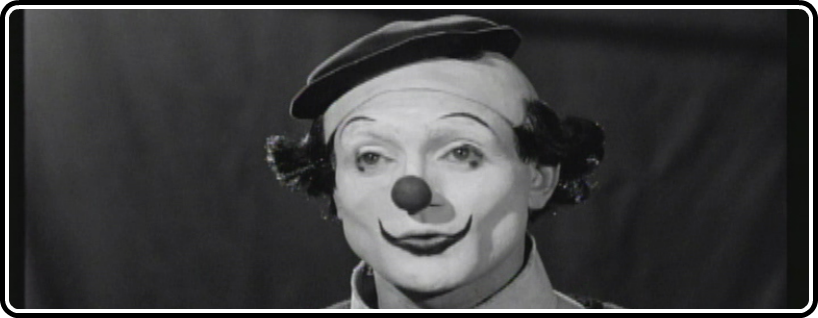
After decades of undeserved obscurity, languishing in the limbo that exists at the intersection of faded memories, legal entanglements and general apathy, the films of Pierre Etaix are poised to garner a lot of attention over the next few weeks. The Criterion Collection is a little over a week away from issuing a long-awaited box set containing the major works of a performer, writer and director who will once again be called upon to prove himself a worthy successor to his former teacher and collaborator, Jacques Tati. As most readers will know, Criterion recently lost the rights to all of the Tati films in their library – an outrage that we’ve had to resign ourselves to, knowing that protest is utterly futile. While Etaix is nowhere near a mere imitator, and nothing can truly replace the void created when M. Hulot went on a long-term, ill-timed holiday from the Criterion marketplace, the availability of Etaix’s genteel, sophisticated and whimsical comedies does at least provide a measure of balance to compensate for that loss.
Sneak previews of the contents of that nicely appointed box, titled simply Pierre Etaix, are already making the rounds, including a nice batch of pics that you can see on the CriterionCast Tumblr page. With a few exceptions (namely, those who are fortunate enough to have attended one of the dozen or so retrospectives sponsored by Janus Films since last fall), most of us who track new Criterion releases will be making our first acquaintance with Etaix. His movies have been out of circulation for so long that there’s really been very little beyond word of mouth, scattered film history references and the occasional YouTube clip to validate our trust that these would be highly entertaining, well-crafted cinematic gems. But after having seen Etaix’s purported masterpiece Yoyo for myself, I’m here to confirm that he does indeed live up to the hype. This is superb comedic artistry, a wistful series of sketches woven together to tell a story that on its surface is somewhat slight and convenient, but manages to affect us on a deeper level through its embrace of archetypal 20th century history and universal relational dynamics. Beyond Tati, there are discernible traces of Charlie Chaplin, Ernst Lubitsch and Sacha Guitry to be found, though I think it’s likely that Etaix emerges with his own distinctive voice as one becomes more familiar with his work.
The gist of Yoyo‘s story concerns a son’s response to his father’s absence and indifference throughout his childhood, but more apparent on the first viewing is the story of a ridiculously wealthy, chronically bored aristocrat (portrayed with jaded elegance by Etaix), who lacks nothing in life except the affection of a beautiful woman he once knew intimately but with whom he has now lost contact. We meet the millionaire in a sequence set in 1925 and presented very much like a film from that era – no spoken dialog, just intertitles and a musical soundtrack emblematic of the times.
He lives in opulent luxury, but none of the entertainments at his disposal can break the grip of his deep-seated ennui – until a circus rolls into town one day and surprisingly reunites him with his long-lost flame. It turns out that she has a son, who bears an uncanny resemblance to the rich playboy. After the stock market crash and global depression soon wipe out his fortune, circumstances bring the family together, though in much poorer conditions than any of them would have expected when the family was first united.
The narrative moves through the Depression, into World War II, the war’s reconstructive aftermath and the newly ascendant “golden age of television,” as we see the young boy grow up into the famous and celebrated clown, Yoyo. Etaix changes his make-up and demeanor a bit to take on the role of his son, putting his prodigious skills as a mime, magician and clown to good use while also managing to make Yoyo the man a fleshed-out, sympathetic character as he seeks out a place in the world where he can finally get off the road and settle down for a while.
Still, it’s a big mistake to focus too much on the story that Yoyo is telling, since that narrative is merely a vehicle for Etaix to trot out a seemingly bottomless reservoir of sight and sound gags that need to be closely observed for the full hilarity to sink in. More likely, the jokes will continue to reveal themselves through second- and third-viewings, becoming more droll and ingratiating with each pass. I’ve watched Yoyo twice through already, with the laughs coming more frequently and fully on the return visit, and that’s only increased my fervor to see it again, soon after the blu-ray edition comes out later this month, when the finer details will come through ever more clearly with the improved resolution. As Scott said in his earlier review of Etaix’s As Long As You’re Healthy, watching these films in a theater packed with cinephiles ready to appreciate this warm and witty confection is a privilege I’d enjoy but probably won’t be able to share. So if you’re within close range of Portland this coming week, or any of the other cities scheduled to host the Etaix retrospective later this spring, seize the opportunity! You’re in for a treat. Will YOYO replace YOLO in the popular lexicon? Probably not, we can only wish. But if enough people see this classic comedy, it just might help.
Yoyo plays at the Northwest Film Center on Thursday, April 18th at 7 p.m. and Saturday, April 20 at 4:30 p.m. Check nwfilm.org for more information.



